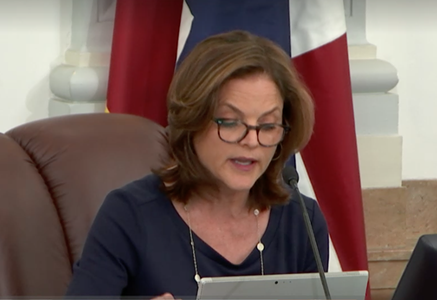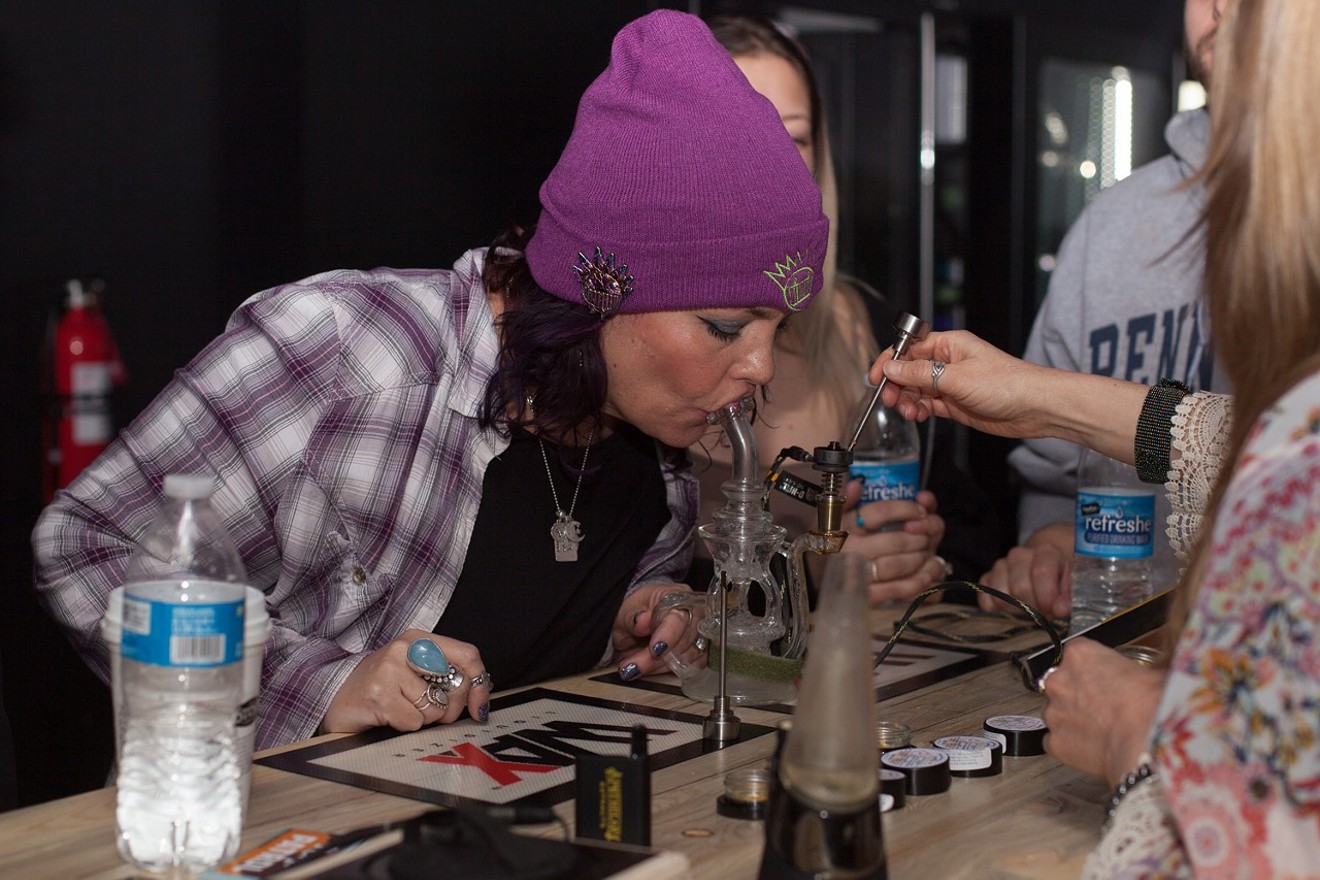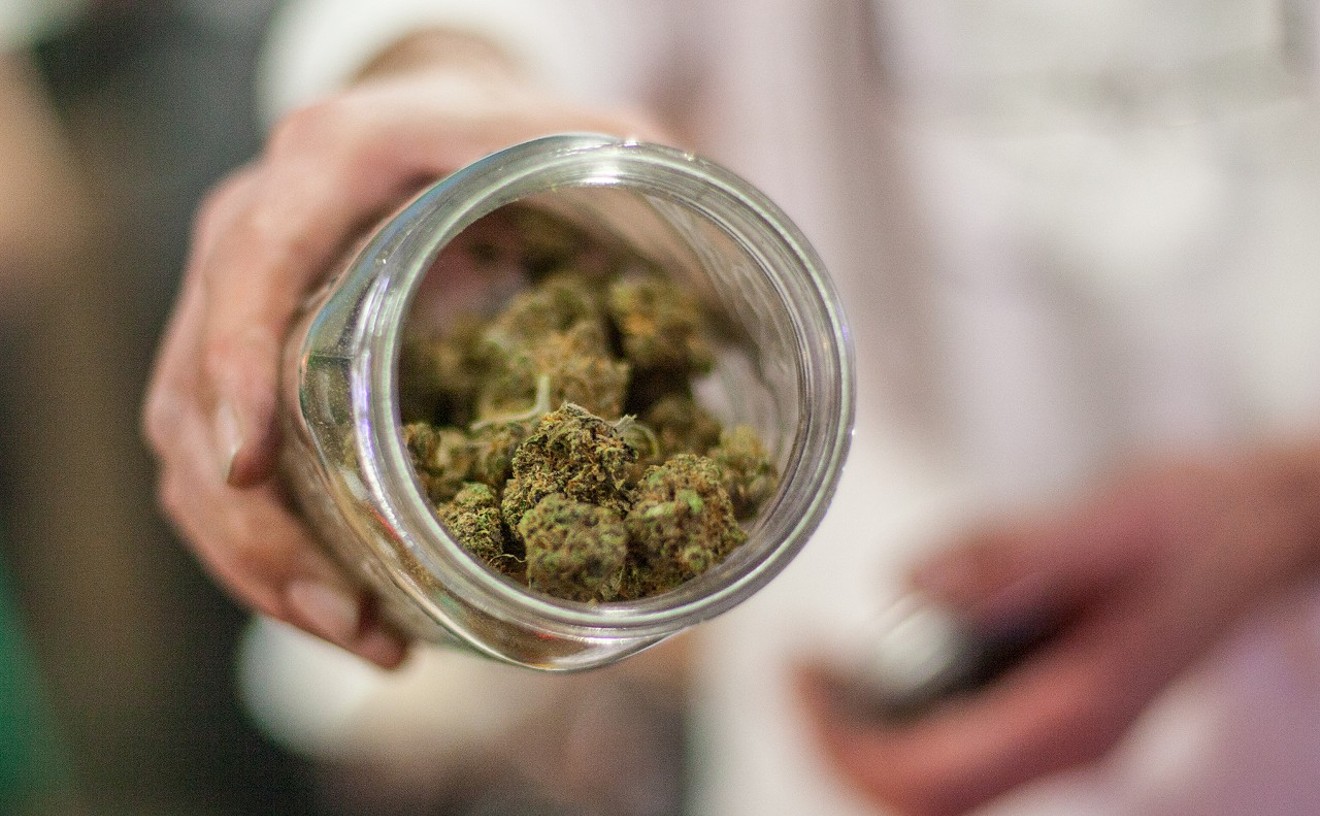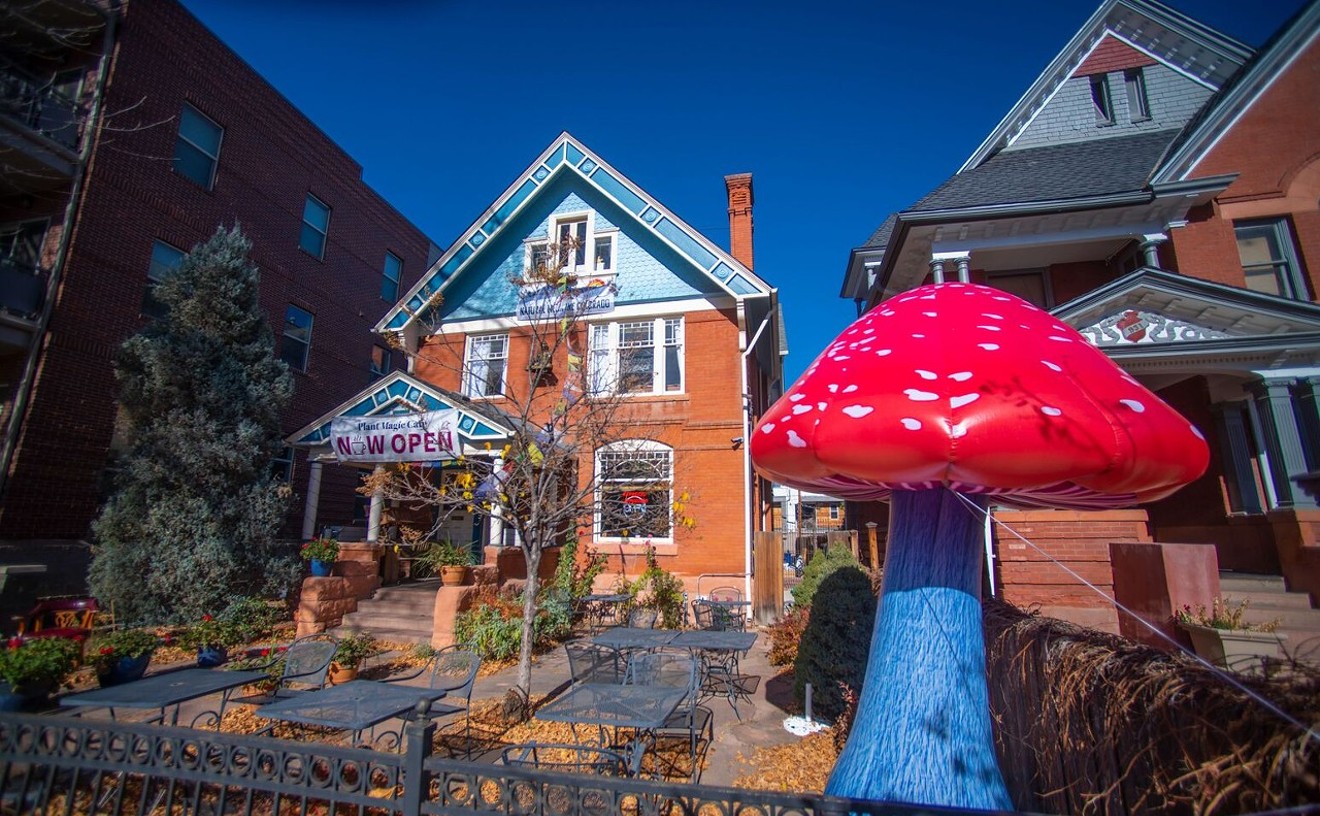While Councilwoman Kendra Black's proposed resolution got a majority of the vote (7 to 5), her fight to cut back location restrictions needed the approval of at least nine councilmembers because she was trying to alter a voter-approved initiative, which had passed back in November 2016.
But the provision Black wanted to change — which calls for a 1,000-foot buffer between a social use business and any daycare centers, drug treatment centers and city-owned parks, pools and recreation centers — was added during a city rule-making process headed by the Denver Department of Excise and Licenses, and was not part of Initiative 300 approved by voters. As originally drafted, the social use ordinance only included one 1,000-foot buffer: the distance from schools.
Black had proposed keeping the 1,000-foot restriction for schools but cutting the setbacks for all locations that were added during rule-making to 500 feet. After leading a task force that evaluated the success of Denver's social pot use program for nearly a year, she thought a 500-foot buffer was a modest compromise.
"I've been asked why I even put energy into this issue," she told fellow councilmembers before the vote. "We collect a lot of tax revenue [from marijuana], which we all welcome. This council voted unanimously to increase the marijuana sales tax for affordable housing. It seems contradictory that we heavily tax the industry, we welcome the sales to tourists, but don't give them a place to consume."
Since Excise and Licenses began accepting applications in 2017, only two establishments have been approved for social use; the initiative's proponents and marijuana stakeholders argue that the location restrictions prevent would-be potrepreneurs from opening anywhere desirable. State laws banning the sale of alcohol and marijuana on the same premises and prohibiting marijuana sales at any consumption area have also hampered the program's success.
Despite support from the majority of the council and a vocal section of marijuana business owners, Black's recommendation was opposed by Mayor Michael Hancock and several councilmembers, including Kevin Flynn, Christopher Herndon, Stacie Gilmore, Wayne New and Rafael Espinonza, all of whom voted against the measure. Flynn has long proposed blowing up the entire program and starting from scratch, while other concerns centered around exposing children to pot consumption.
At-large councilmember Debbie Ortega, who was on Black's task force, abstained from the preliminary vote last week and was absent during the final vote on April 22.

City Councilwoman Kendra Black needed two-thirds approval to change the location restrictions, but fell just short of that.
Channel 8
Black thought using children's safety as a defense against making any location changes was bogus, and argued that keeping out social use businesses would continue a trend of public marijuana use in city parks and on sidewalks and the 16th Street Mall.
"Denver voters have approved multiple marijuana measures, both locally and at a state level. Amendment 64 passed in a landslide, with two-thirds of Denver voters in support," Black told her fellow councilmembers before the vote. "The purpose of this initiative was to protect kids from seeing and smelling consumption in parks, on sidewalks on the 16th Street Mall and along our rivers. ... I'm really perplexed by people who are opposing this in the name of kids."
Utopia Wellness owner Cindy Sovine had hoped that easing the location buffer would allow her to open a marijuana-friendly spa and healing center in the RiNo area after her application for a mansion in Capitol Hill was denied for being within 982 feet from Third Way Center, a child-care facility. Already upset that Black's proposal required nine votes instead of seven to change something the voters hadn't considered, Sovine says that suing the city isn't off the table.
Pursuing litigation was considered by the initiative's drafters in 2017, shortly after the program's rules were adopted by Excise and Licenses; they believed the department had overreached with its rulemaking authority. Asked at the April 22 council meeting if the city was indeed open to a lawsuit over the added rules, the city's legislative council couldn't provide a "yes" or "no" answer.
"What the city has done has overreached with its authority during the implementation of this initiative. City council had an opportunity to right licensing's wrongs, but they chose not to, so now it's something that can be litigated in the court," Sovine said after the vote. "The truth is that none of us are going anywhere. These businesses still want to operate here, and if the statewide legislation doesn't change that, then this conversation will continue."
According to the language of Amendment 64, "open and public" marijuana consumption is banned in the state constitution, but the definition of "open and public" has been subject to debate since the measure passed in November 2012. A bill that would legalize social marijuana use in licensed businesses at the state level passed through the Colorado House earlier this month and is currently making its run through the Senate. Sovine believes some councilmembers are waiting on that legislation — but even if it passes, the bill would give Colorado localities the authority to allow or ban social use businesses, or tweak the rules.
"It's not white girls like me who are getting fined or criminalized for [public consumption]. It's minorities, single parents and veterans," Sovine added. "This progress is going to continue to happen through voters until we put people in place who are willing to listen to them."












